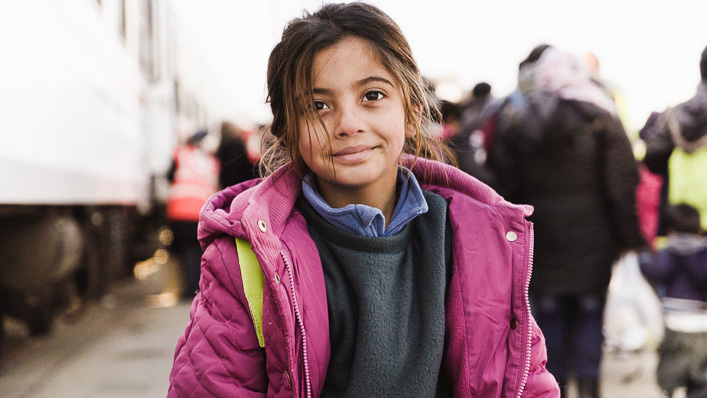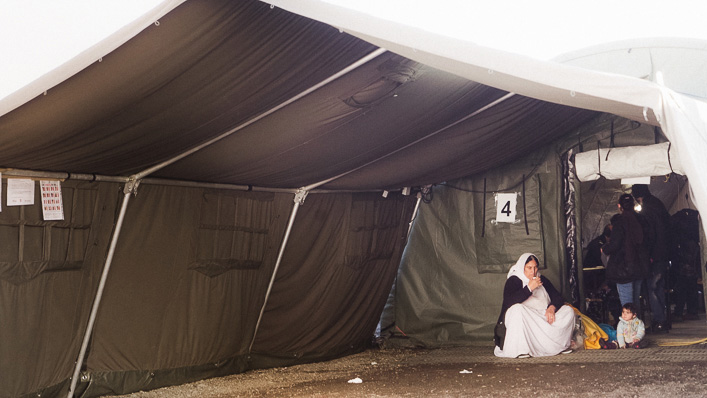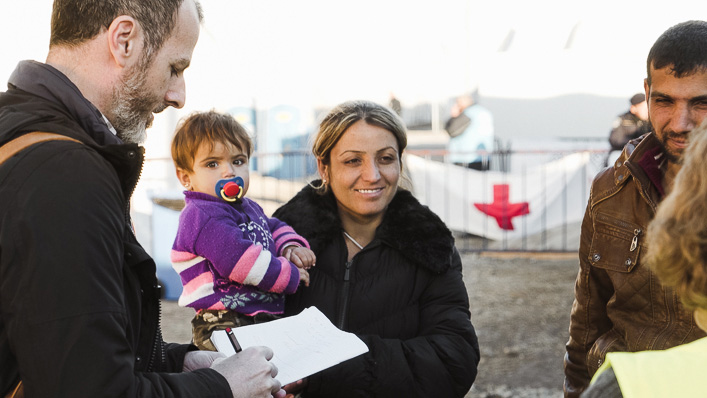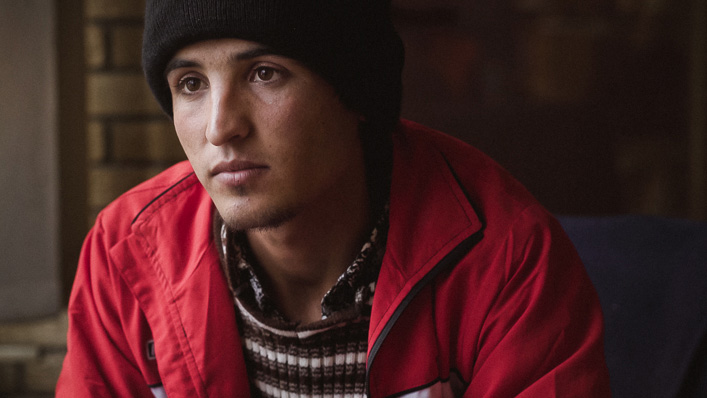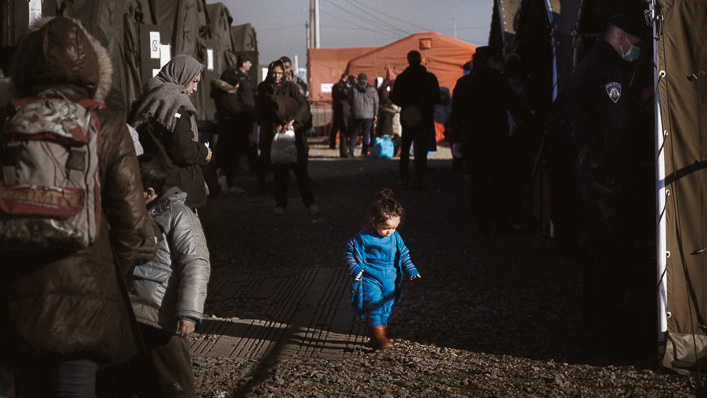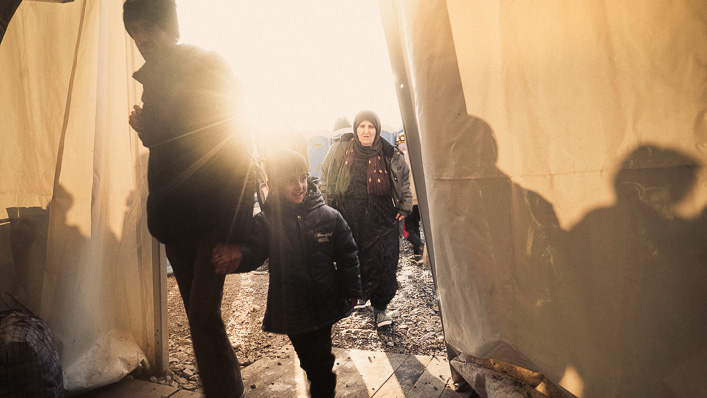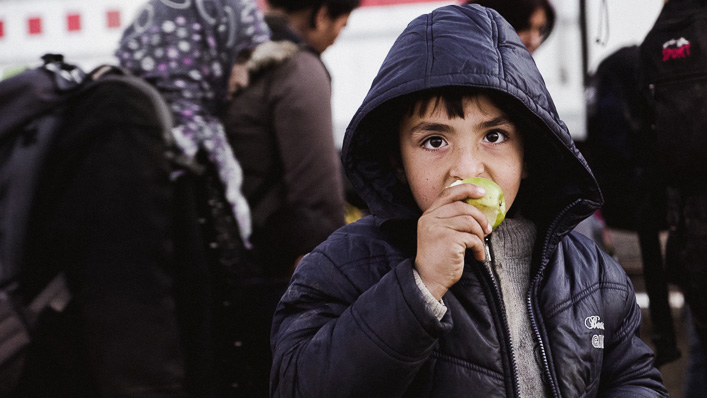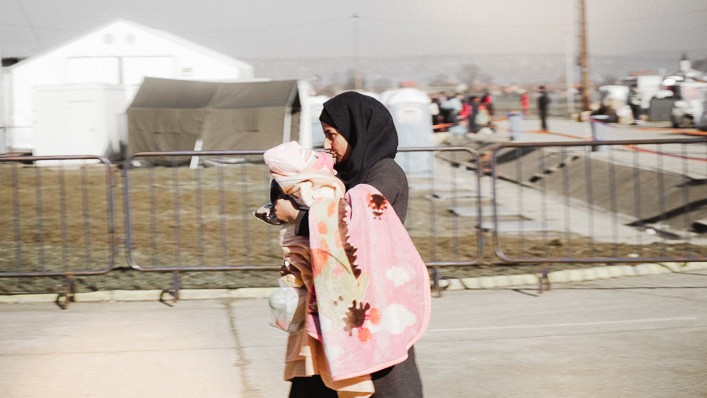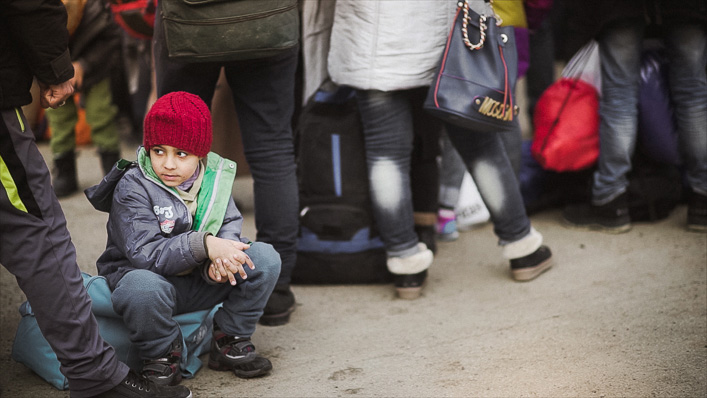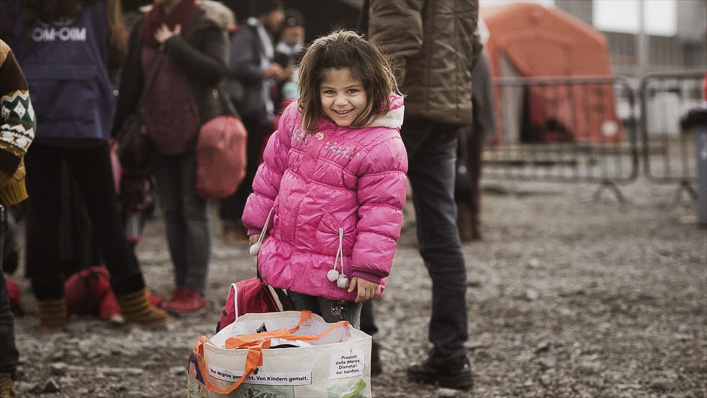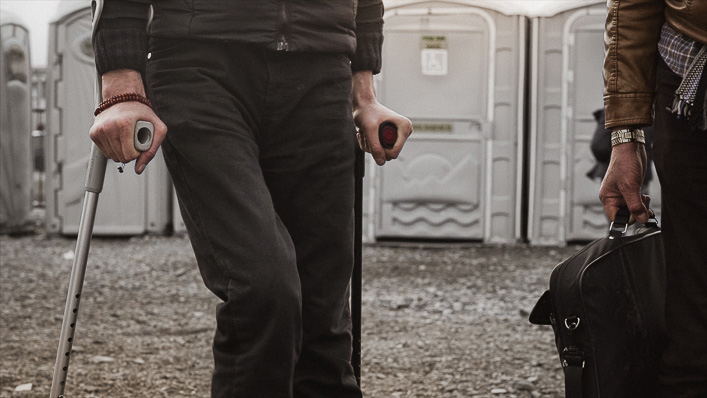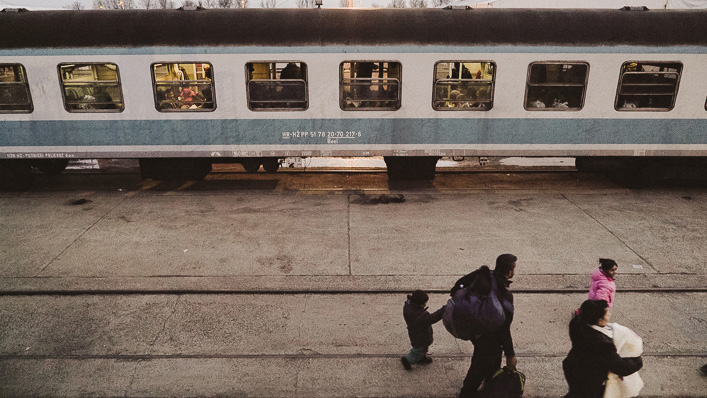(This is part three of a five-part series on Syrian Refugees. Read part one here, and part two here.)
So there was a family who came to the camp today. Mom, dad, grandma, little boy, and 7-year-old daughter. The daughter was the only one who spoke English, and so she inevitably took charge and became the voice for her family.
“My grandma needs a coat,” she begged, “these pants for dad, my brother really, really needs shoes… please!”
She’s desperate, yet calm. Insistent, yet thankful.
Our team fulfills her requests, and then we look down and see HER OWN shoes are in pieces… yet, she’s completely disinterested in her needs. Upon trying to find shoes for her, the camp appears to be out of her size, and the local police are pushing for them to leave.
“That’s ok,” she confidently insists while being escorted away.
One of our team members ran to the storage tent, found shoes in the right size, and caught her right as she was getting on the train. The silent gratitude that exuded from her eyes was all the thanks needed.
This is life, guys.
This is the needed strength these refugees must have.
This is my daughter’s age.
Something I’ve noticed while being here at the camp, observing a people group and culture I’ve yet to experience, is that these people are not feeling sorry for themselves. They are not playing the martyrs. Whatsoever.
Taco Bell got my order wrong last week, and I felt sorry for myself.
Got all the way home, settled down in front of the TV to relax and watch a Shark Tank rerun… and legitimately felt sorry for myself because I only got one Soft Taco Supreme instead of two.
I called management.
They’re sending me a coupon.
I’m not sitting here saying we, as Americans, need to feel guilt for the privilege and freedom we experience. I think too many people like to get a little extreme and send the pendulum a little too far in the opposite direction. But I am saying I felt sorry for myself because I didn’t get my desired number of soft taco supremes.
Take that how you wish.
A big part of this project, and a big reason as to why I came to these refugee camps is not just to capture compelling video, or to see these places first-hand, but rather to meet and talk with actual refugees. To hear their stories and humanize them just a bit.
I’m honestly kind of tired of seeing selfies of people like Kim Kardashian and thinking I know her as a human. A carefully selected selfie humanizes her no more than a sweater humanizes my dog. But stories, STORIES, that’s where you get to know a person! And that’s how I’m getting to know these refugees.
We interviewed a guy named Hassan (not his real name).
Hassan is an 18-year-old kid from Northern Iraq.
A kid who was shaking while we were talking with him. We asked him if he was nervous about the interview, he replied he was just cold.
Hassan was not cold.
Hassan was not nervous about the interview.
Hassan was just nervous.
Hassan was terrified, actually.
See, Hassan’s family is in a horribly dangerous part of northern Iraq and is quite literally being hunted by ISIS. Hassan’s family could only scrounge up enough money to send Hassan, ahead of them, to establish a life that they could then safely follow.
“Hassan do you know where you’re going?” we reluctantly asked.
“Germany.” (A country who’s been stepping up when it comes to this crisis.)
“Do you know where in Germany?”
“No.”
“Do you know what you’re going to do when you get to this place you do not know where you’re going?”
“… No.”
“Do you have enough money to make it to Germany?”
“… Probably not, no.”
“Do you know when you’re going to see your family again?”
“No.”
“Are you scared?”
“…”
Hassan, an 18-year-old kid, has been given the responsibility of traveling to Germany, finding a place to live, finding a job, finding a place to go to school, figuring out how to pay for school, finishing school, establishing a career, establishing a place for his family to live, and then making enough money to bring them there.
And I’m still a little mad about my soft taco supreme.
Could you imagine taking on that responsibility as an 18-year-old kid? Clearly scared out of his mind, yet standing strong because this is the only option at this point.
I’m encouraged.
As an American, mainstream media (and Facebook, for that matter) has fed me a whole lot of misconceptions, stereotypes, and fallacies about these refugee people. The picture the media painted for me is probably one I wanted to believe, but I’m finding many inconsistencies between my perceived ideas and actual reality.
But being here and seeing it up close—this newly discovered reality—is encouraging.
Really, REALLY encouraging.
These travelers aren’t just standing by—feeling sorry for themselves, waiting for somebody to scoop them up and take them to a better life. They’re moving. Quite literally. Across Europe.
To a life that may not necessarily be easier, or more certain, or less dangerous, or more complete, but to a life that is theirs.
A life that contains hope.
And I’m encouraged.
Jon
Jon is a professional photographer from Dayton, Ohio.


